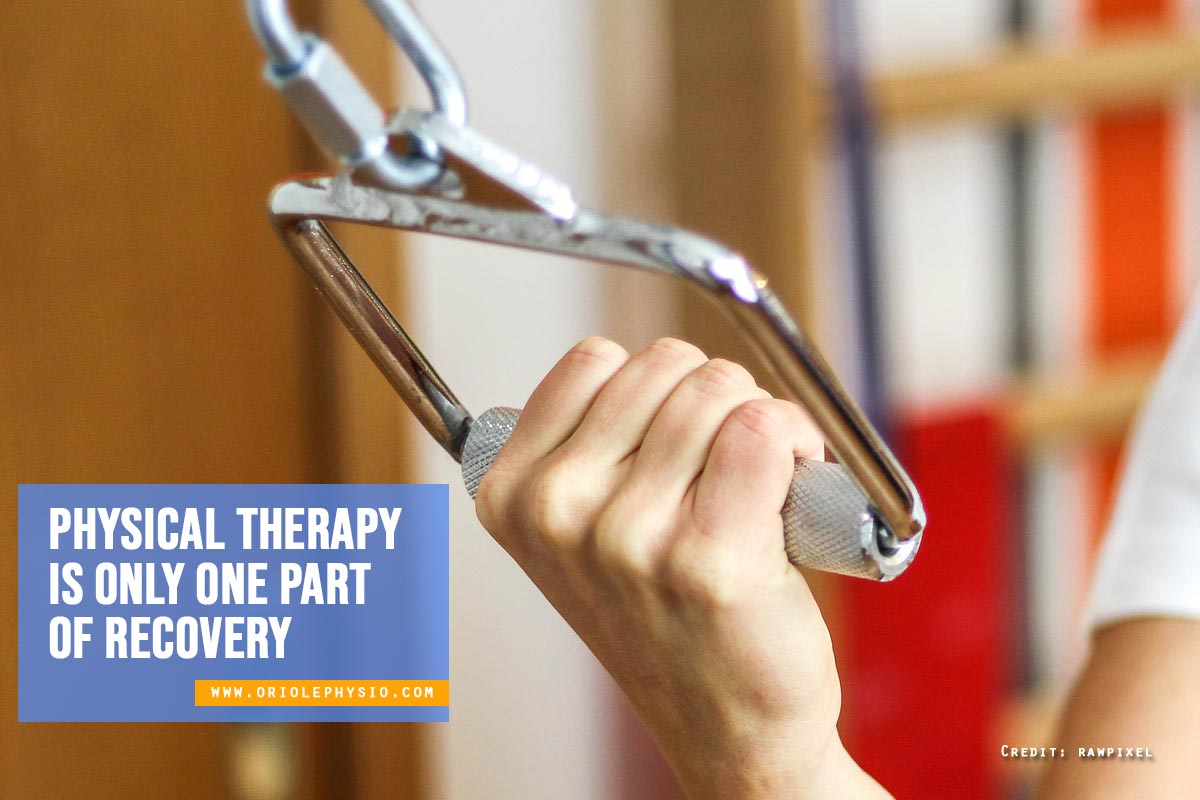How to Deal with the Psychological Effects of Sports Injury
Sports injuries are a fact of life for many athletes. However, what you may not expect is the psychological impact of an injury. It’s common to feel a roller-coaster of emotions, including anger, fear, and depression.
Some of the fears you may experience include:
-
Loss of identity
If you’ve played from a young age, you may identify with their sport (e.g. I’m a basketball player).
-
Doubts for the future
You may be afraid about being able to play at the same level, or about being able to play afterward.
-
Fear of re-injury
When you get better, you may still have thoughts about hurting yourself again.
-
Losing your connection with your team
- Your team is an integral part of your social life. You may feel that the injury isolates you from your teammates, or worry that you could be replaced.
Dealing with the mental and emotional fallout from an injury is crucial to a full recovery. Remember that you’re still an athlete even when injured. Feeling stressed during recovery can slow your ability to heal and extend the downtime. One of your jobs while injured is to reduce that stress. While this may seem impossible, it’s entirely doable. The trick is to think of sports injury recovery as your new “sport.”
Here are some methods you can use to reduce stress and start on the road to recovery. Be proactive and avoid letting depression and stress derail your life.
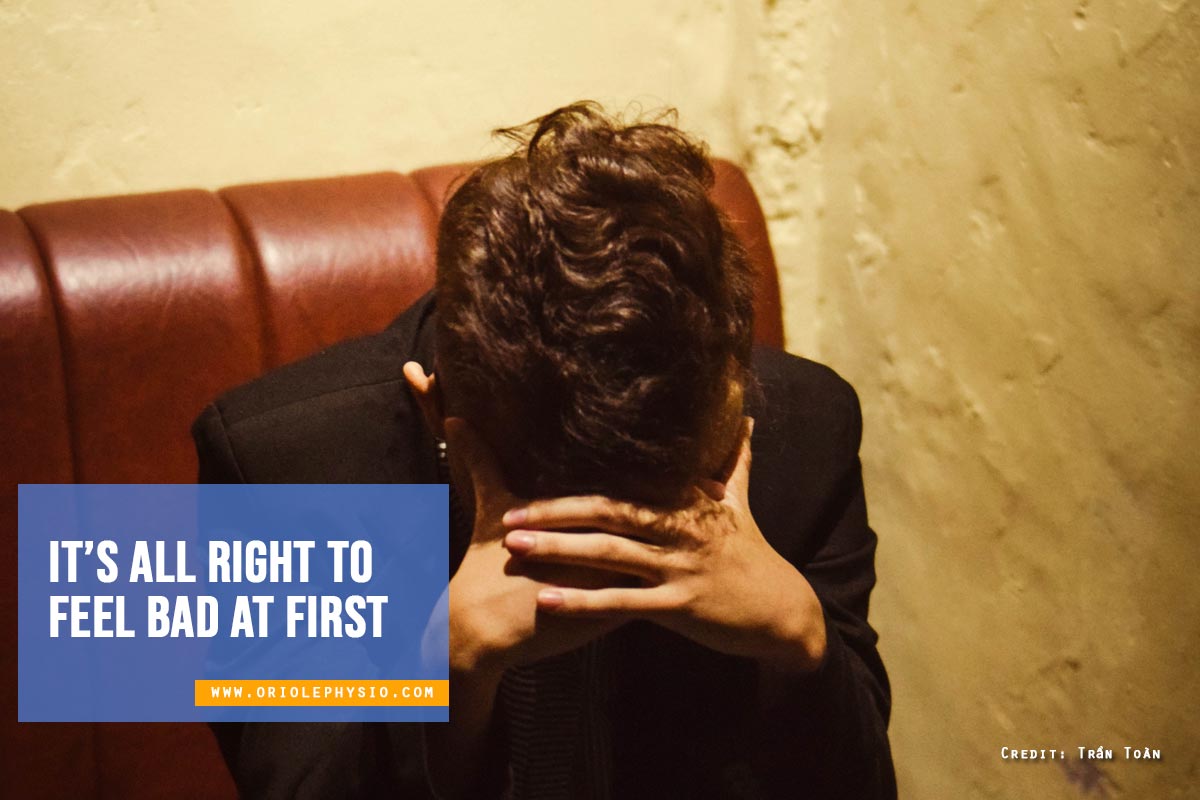
-
Allow yourself to feel sad
Accepting your emotions is part of the healing process. It can be draining trying to be strong while recovering. Give yourself permission to feel sad or afraid, and accept that these emotions are normal and understandable. Once you have recognized and validated these emotions, resolve to bounce back. Avoid overindulging negative feelings and tell yourself that this will pass.
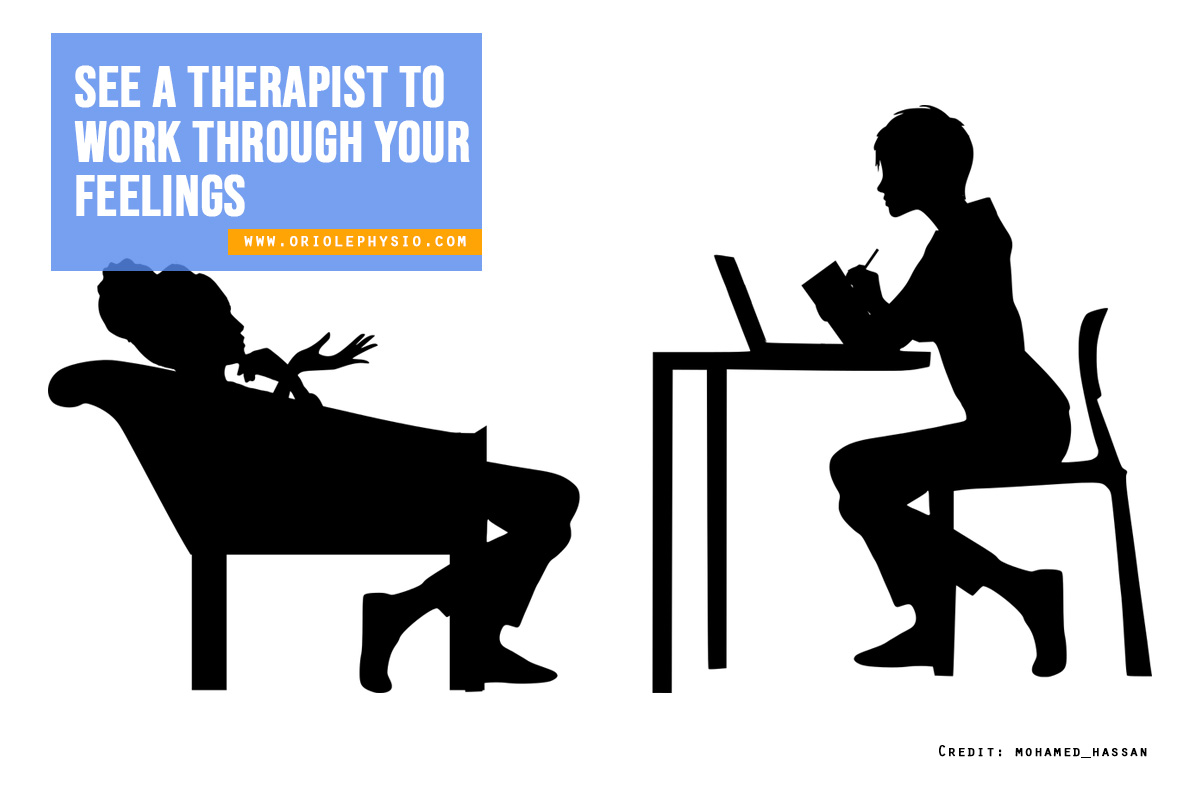
-
Get support
A common response to an injury is to isolate yourself from family, friends, and teammates. Focus on staying in touch with loved ones to get support during this time. Your support network can assist you, so ask for help when you need it. Knowing that you don’t have to deal with the injury on your own can reduce stress and negative emotions just by itself.
Support can be as simple as having someone to listen when you need to vent. Consider getting in touch with a counsellor for psychological therapy. Your mental recovery is just as important as the physical.
-
Focus on what is
One of the first things to do is take ownership of your injury. That’s not to say that the injury was your fault. Accept the reality that you are injured and that you cannot change what happened. Some athletes focus on “what was” or “what could have been.” Accept “what is,” and take charge of your recovery.
Whatever happens, you get to decide the outcome. Take responsibility for your recovery. This approach gives you more control and allows you to set your own goals moving forward.
-
Adjust your goals
Continue setting goals for yourself after your injury. View your injury not as a crisis, but as a training challenge. Your current goals are focused on recovery, not performance. Set realistic goals as you recover, and understand that it will take some time to regain your previous level of performance. There may be setbacks, and you may have to adjust for them. Think of this as you adapting according to feedback so you can stay on the road to recovery. Keep track of your goals to help you notice small improvements as you heal.
Work with your therapist to set reasonable goals. Some athletes try to do too much, too soon. Move at a steady pace to give yourself time to get your strength back.
-
Get plenty of rest
When you get injured, the body needs time to rest. Take as much time as you need to get your strength back and refuel. Some try to fast-forward their recovery, putting themselves at risk of aggravating the original condition. Take things slowly; sometimes the fastest way to recovery is the slow path. Be patient. Take advantage of the time to learn more about your injury. The more you know about it, the less fear or distress it will cause. Ask questions (e.g. about the diagnosis or recovery time). Understand your injury and know what to expect. Being aware of these things can give you more control and help you stay hopeful.
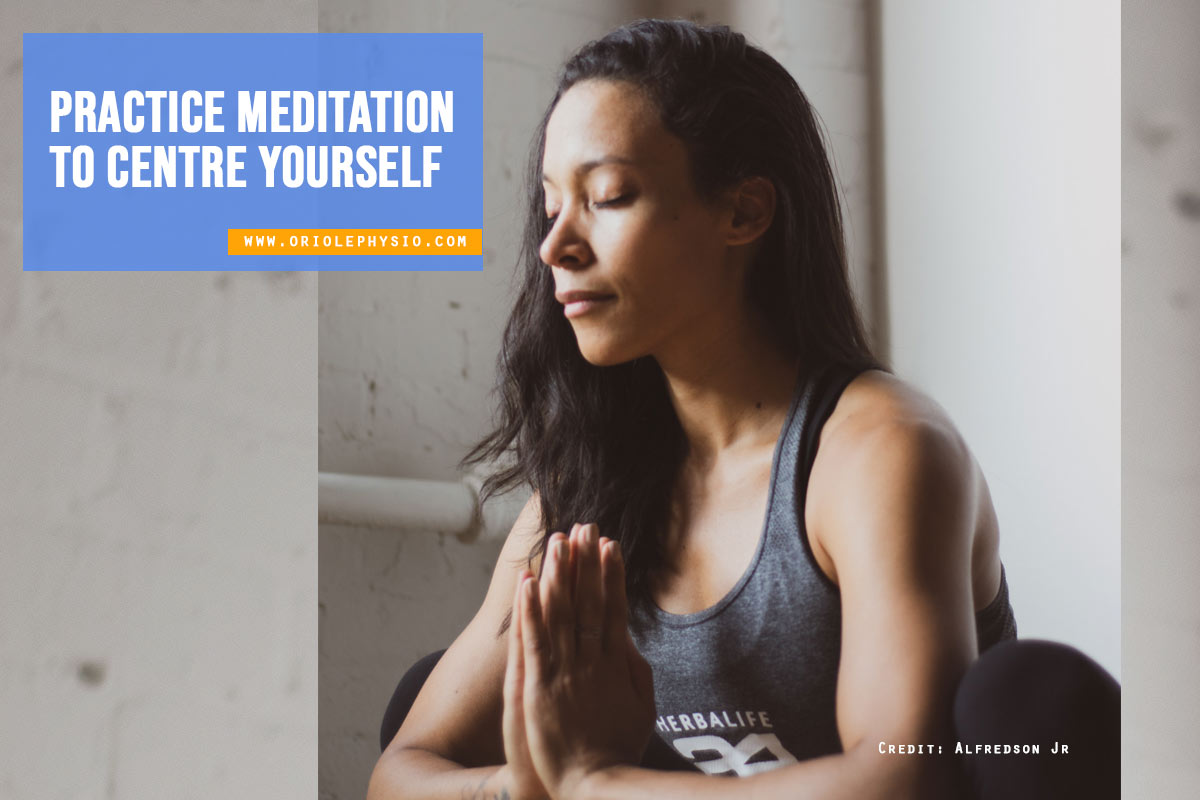
-
Learn to relax
Stress can have physiological effects in addition to the psychological ones. These effects can slow the immune system and make your recovery take longer. Find ways to de-stress and relax to both feel and get better. Practice breathing exercises and meditation to find your centre and reduce stress. As an added bonus, the same techniques can help you perform better under pressure after your recovery is complete. Think of that as an extra incentive to use these methods while recuperating.
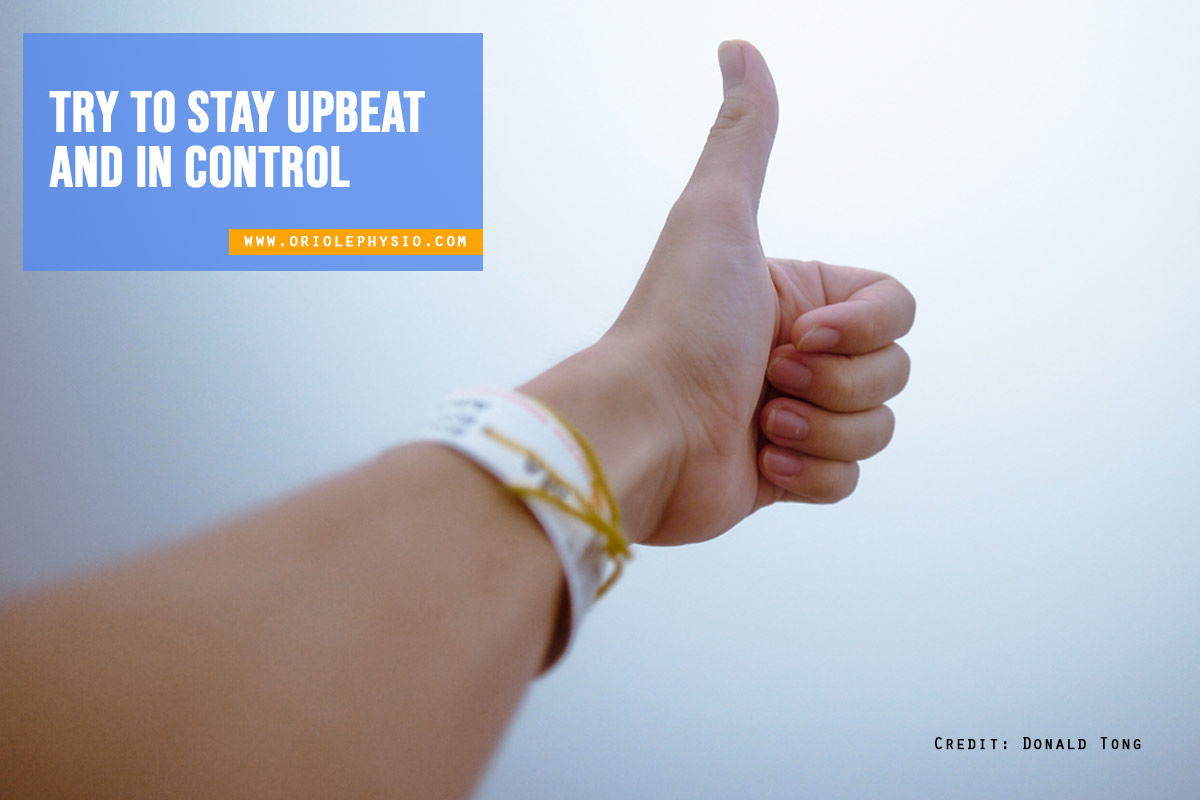
-
Stay positive
Stress and negativity slow the healing process. Keep a positive attitude throughout your recovery. This helps keep your spirits up and enables you to feel better about your prospects. Find ways to make yourself laugh throughout the day. Laughing helps reduce stress and relax the muscles. Anticipating laughing can even help muscle relaxation. This has the effect of lowering cortisol and adrenaline levels in the body. Be proactive about finding opportunities to laugh. More time laughing means less time stressing over your injuries. Do monitor your self-talk as well to help put yourself in a more positive mindset.
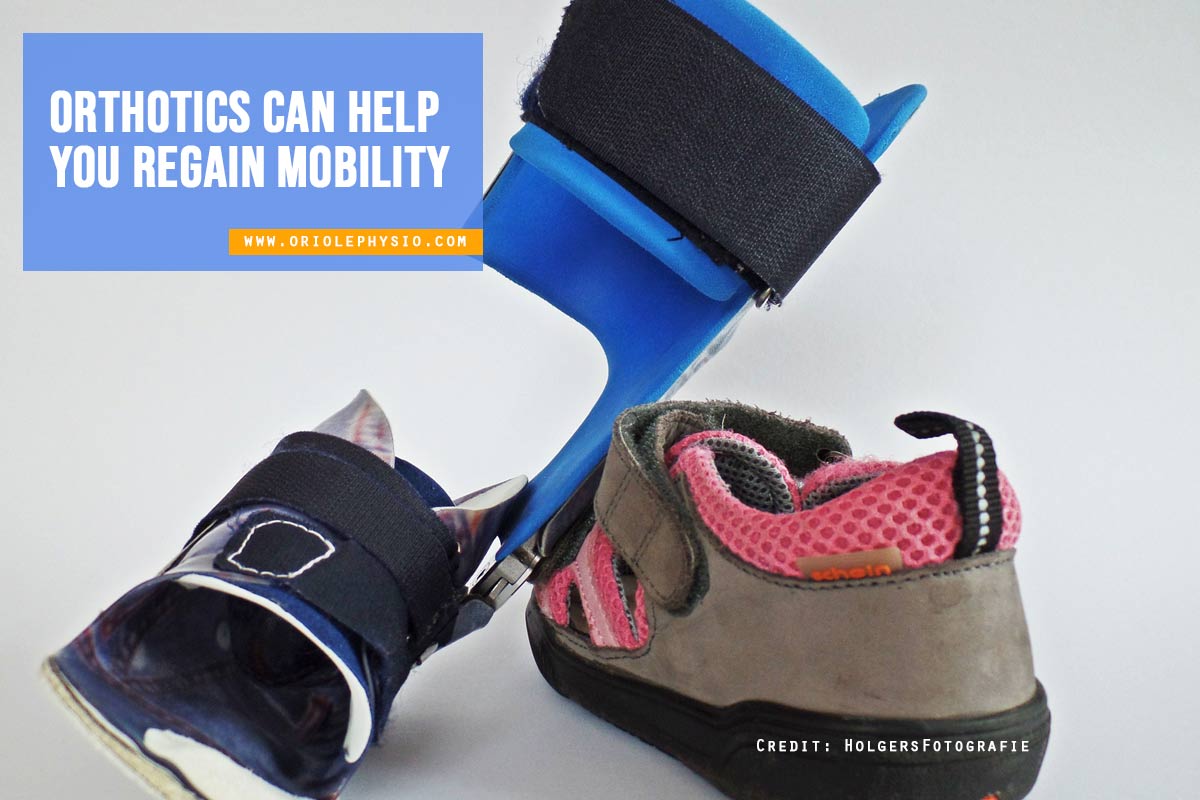
-
Continue to practice
Depending on the injury, you may still be able to do some training while recovering. Work with your therapist to find alternative workout programs. For example, you may try replacing running with swimming or relaxation training during recovery. If your injury is stress-related, using a custom-designed device (like orthotics) might help speed recovery time. Custom devices are designed to meet your body and the specifics of your injury and can help relieve pain and aid you in recovery.
Mental training can be as valuable as physical therapy during your recovery. Visualize yourself exercising to stimulate your neuromuscular connections. Visualization uses the same neural pathways as physically acting. Think of it as the closest thing you can do to physical exercise. This can keep your skills sharp even while recovering. As you heal, this technique can help you visualize how you want to feel and move as you exit therapy.
- Be active in the healing processTake an active hand in your healing. For example, use visualization during rehab to feel more engaged and hopeful. Take the initiative during recuperation to avoid letting the injury dictate your recovery. Owning your recovery shifts your focus from thoughts of could-have-been to what will be. Follow your medical game-plan and attend every rehab session. Use your recovery as a chance to make yourself stronger and fitter than before, physically, mentally, and emotionally.
Above all, be patient. It can take some time to recover from injury. Understanding and taking ownership of your injury will help you to buy into your recovery timetable, and give you a positive goal for your energies. Focus on the now and take charge of your recovery.
Oriole Physiotherapy & Rehabilitation Centre provides patients with top-notch care. Whenever you need therapy and rehab for injuries, you can count on us. Our caring staff offer personalized care for a variety of illnesses and injuries. Give us a call at (416) 221-0772 to reduce your pain and get some relief. We’re ready to help you.

